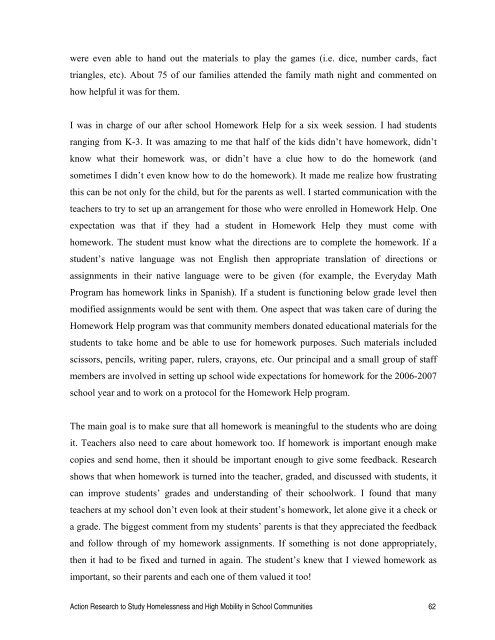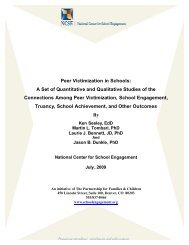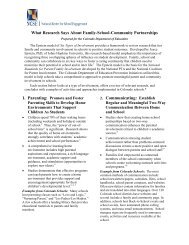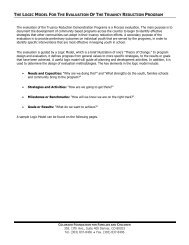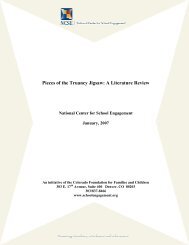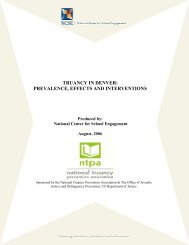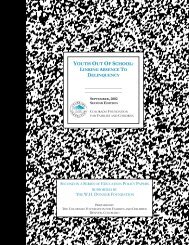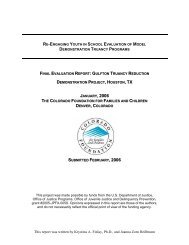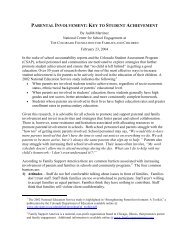Section 1: Academic Achievement - National Center for School ...
Section 1: Academic Achievement - National Center for School ...
Section 1: Academic Achievement - National Center for School ...
Create successful ePaper yourself
Turn your PDF publications into a flip-book with our unique Google optimized e-Paper software.
were even able to hand out the materials to play the games (i.e. dice, number cards, fact<br />
triangles, etc). About 75 of our families attended the family math night and commented on<br />
how helpful it was <strong>for</strong> them.<br />
I was in charge of our after school Homework Help <strong>for</strong> a six week session. I had students<br />
ranging from K-3. It was amazing to me that half of the kids didn’t have homework, didn’t<br />
know what their homework was, or didn’t have a clue how to do the homework (and<br />
sometimes I didn’t even know how to do the homework). It made me realize how frustrating<br />
this can be not only <strong>for</strong> the child, but <strong>for</strong> the parents as well. I started communication with the<br />
teachers to try to set up an arrangement <strong>for</strong> those who were enrolled in Homework Help. One<br />
expectation was that if they had a student in Homework Help they must come with<br />
homework. The student must know what the directions are to complete the homework. If a<br />
student’s native language was not English then appropriate translation of directions or<br />
assignments in their native language were to be given (<strong>for</strong> example, the Everyday Math<br />
Program has homework links in Spanish). If a student is functioning below grade level then<br />
modified assignments would be sent with them. One aspect that was taken care of during the<br />
Homework Help program was that community members donated educational materials <strong>for</strong> the<br />
students to take home and be able to use <strong>for</strong> homework purposes. Such materials included<br />
scissors, pencils, writing paper, rulers, crayons, etc. Our principal and a small group of staff<br />
members are involved in setting up school wide expectations <strong>for</strong> homework <strong>for</strong> the 2006-2007<br />
school year and to work on a protocol <strong>for</strong> the Homework Help program.<br />
The main goal is to make sure that all homework is meaningful to the students who are doing<br />
it. Teachers also need to care about homework too. If homework is important enough make<br />
copies and send home, then it should be important enough to give some feedback. Research<br />
shows that when homework is turned into the teacher, graded, and discussed with students, it<br />
can improve students’ grades and understanding of their schoolwork. I found that many<br />
teachers at my school don’t even look at their student’s homework, let alone give it a check or<br />
a grade. The biggest comment from my students’ parents is that they appreciated the feedback<br />
and follow through of my homework assignments. If something is not done appropriately,<br />
then it had to be fixed and turned in again. The student’s knew that I viewed homework as<br />
important, so their parents and each one of them valued it too!<br />
Action Research to Study Homelessness and High Mobility in <strong>School</strong> Communities 62


